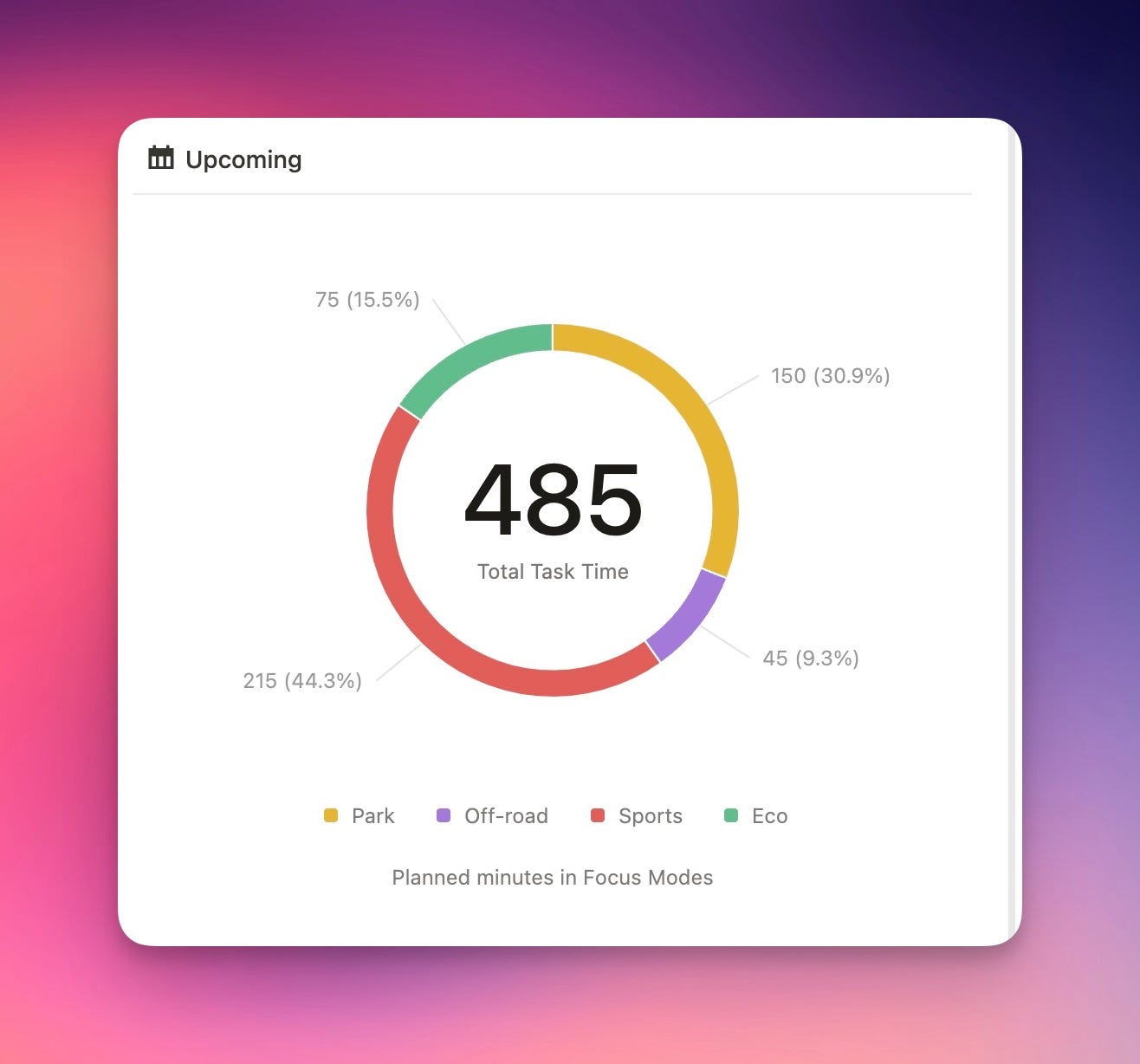Opinionated Systems: Fewer Choices, More Action
Discover why your brain craves direction
Ever tried learning all the nuances of nutrition, only to feel overwhelmed?
It’s one thing to study macro and micronutrients or memorise the glycemic index.
It’s another to say, “Eat these exact meals this week.”
That’s the difference between teaching nutrition (unlimited options, infinite pathways) and handing you a nutrition plan (opinions baked in, decisions handled).
One just transfers knowledge. The other eliminates guesswork.
We see this split everywhere.
The GPS that shows you one or two routes, instead of dumping a maze of backroads on your screen. The streaming service that curates a “Top 10,” rather than making you scroll hundreds of titles. All these mechanisms save you from mental gridlock, letting you move forward without dragging your feet.
The Hidden Drain of Planning to Be Productive
According to a study in the journal Decision, the average person makes 35,000 decisions a day.
That’s a lot of mental overhead. Decision fatigue zaps our self-control and energy with each choice we face. Spend too long browsing productivity hacks on YouTube, and you’re toast by the time you finally sit down to work. The big project remains untouched because you’ve used up your mental fuel just planning how to be productive.
“It’s not a lack of time. It’s a lack of direction.” — Zig Ziglar
Ziglar’s words sting because they’re true: we can have the greatest tools and the longest to-do list. But if we don’t know where to start, we burn time deciding instead of doing.
The Power of Opinionated Systems
An opinionated system, by definition, chooses for you.
It narrows your focus. It pulls you out of the quicksand of overthinking, and points you down a single path. It may not be a perfect path. But a well travelled path is better than a perfect path that never appears. You progress faster than if you tried to find the “one best way” on your own.
"Simplicity is the ultimate sophistication." — Leonardo da Vinci
Nutrition Plans vs. Nutrition Lessons
Teaching Nutrition: You learn about carbs, proteins, healthy fats, water intake, etc. You can adapt these rules in infinite ways.
Nutrition Plan: “Eat oatmeal with berries for breakfast, tuna salad for lunch, grilled chicken and veggies for dinner.” Boom. Instant clarity.
One is a deep dive into the why. The other just says, “Here’s exactly what you do.” The second is opinionated, and that’s what gets results when time is tight.
GPS Routing vs. Reading the Map
Full Map: You see every highway, backroad, and side street. You spend energy figuring out your own route.
GPS Directions: “Turn left in 200 feet.” When you hit traffic, it switches to a faster option. No over-analysis. No wasted brainpower.
This level of guidance frees your attention for the journey itself.
Smartphone Keyboard Suggestions
Typing a message? Your keyboard predicts the next word. Instead of thinking too hard or typing every single letter, you tap once, and it’s there.
Why it works: Minimises keystrokes and decisions. The phone forms an opinion about what you’re about to say.
These examples feel obvious once you notice them. But that’s the magic: they reduce friction, blend into your day, and keep you from drowning in endless choices.
A Peek into Behavioural Science
Sometimes we just want something that’s simple or feels right, even if we can’t articulate the perfect reason.
Opinionated systems tap into that. They say, “Trust me. Here’s the next move.” That psychological relief creates desire because deep down, we crave guidance that spares us from the agony of indecision.
Barry Schwartz, author of The Paradox of Choice, argues that too many options can actually paralyse us. When we have fewer, well-curated choices, we’re often happier with our final decision. We feel less regret and less of that “maybe I should’ve picked something else” anxiety.
This same principle applies to your work:
Too many task options = Decision paralysis
Infinite ways to start = Never actually starting
Endless productivity tools = Setup instead of output
Your brain craves direction more than options.
The Power of Opinionated Systems
An opinionated system makes choices for you. It's like having a GPS instead of studying every possible route on a map.
Here's why they work:
Clear starting points
Fewer decision points
Built-in next steps
Reduced mental overhead
Think of it like meal prep vs. staring at a full fridge. One gives you a clear plan, the other leaves you ordering takeout.
Focus HQ
An opinionated system for focus and action
That’s exactly why I’m creating Focus HQ — an opinionated system for your work and life.
Instead of just listing every task and appointment, it guides your decisions. It’s designed to:
Prevent Overwhelm: Nudges you toward the right actions at the right times.
Save Brainpower: Cuts down on the mental drain of deciding how to structure your day.
Use Real Data: Shows your past habits and productivity patterns to guide future actions.
Focus HQ isn’t about restricting freedom. It’s about removing the guesswork so you can channel your energy into actual doing. And because time and willpower are finite, that simple shift can lead to massive changes in your output and well-being.
For those who are already part of Focus Fuel, you’ll get first dibs on the Focus HQ pre-sale. Version 1 will roll out to paid members early, so you can start cutting through the noise and get stuff done.
The Future of Fewer Decisions
We live in a world drowning in choices.
Opinionated systems aren’t about dumbing things down; they’re about creating space for what matters. They help us bypass option overload.
Every moment you spend deciding is a moment you can’t spend doing.
Fewer choices, more action. That’s the power of opinionated systems.
And if you’re ready to see it in action, stay tuned for Focus HQ. It’s coming soon. And it might just change the way you tackle your day.
Until next time,
Dave





Less decisions = More progress.
I am excited about the roll-out of Focus OS.